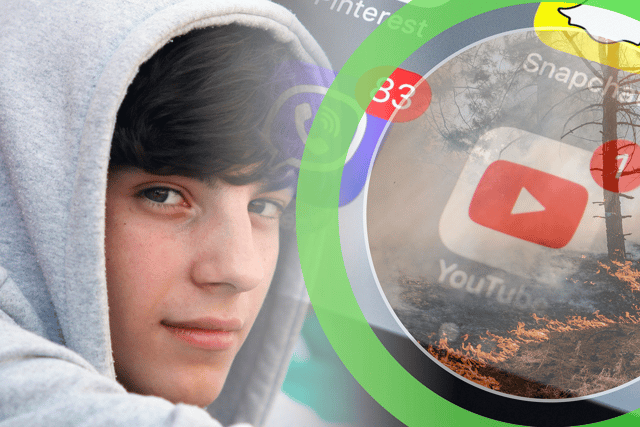Climate denial: One in three teens think climate change exaggerated - as 'new denial' takes over social media
and live on Freeview channel 276
A new study suggests online climate deniers have changed tack over the last few years - and young people who use social media more are more likely to buy into it.
Researchers from the Center for Countering Digital Hate (CCDH), a non-profit targeting hate speech and misinformation, collected text transcripts from 12,058 climate-related YouTube videos posted by 96 channels between January 2018 and September 2023. They used AI to analyse these transcripts, which they say has uncovered a dramatic shift in so-called climate deniers’ output from 'Old Denial' narratives - such as that global warming was not happening or that it was not caused by humans - towards what it has dubbed 'New Denial'.
Advertisement
Hide AdAdvertisement
Hide AdThe centre says 'New Denial' has evolved to focus on three main narratives: that climate solutions won't work; that climate science and the climate movement are unreliable; and that the impacts of global warming will be either beneficial or harmless. The study found that 'New Denial' narratives made up just 35% of all climate denial on YouTube in 2018, but now represented a large majority at 70%. In the same period, 'Old Denial' content has dropped from 65% to just 30% of total claims.


This came after a Pew Research Center survey published in December 2023 found that YouTube was the most widely used social media platform among 13 to 17-year-olds, with 71% of teens saying they use the video-sharing platform daily. Meanwhile, polling by Survation on behalf of the CCDH earlier in the year found that 31% of UK respondents aged 13-17 agreed with the statement “climate change and its effects are being purposefully over exaggerated”. This rose to 37% for teens who were ‘heavy users’ of social media - using any one platform for more than four hours a day.
The report’s findings signalled a major challenge to those seeking to build public support for climate action, the CCDH said, with 'New Denial' narratives being popularised by prominent online figures like Jordan Peterson (7.62 million subscribers) - and championed on channels like BlazeTV (1.92 million subscribers) and PragerU (3.21 million subscribers).
CCDH chief executive Imran Ahmed said that scientists had "won the battle" to inform the public about climate change and its causes, which was why those opposed to climate action had switched focus to undermining confidence in solutions and in science itself. “Young people spend a huge amount of time on video-sharing platforms like YouTube. These new forms of climate denial, which have proliferated rapidly over the last six years, are designed to confuse and weaken public support for climate action in the coming decades."
Advertisement
Hide AdAdvertisement
Hide AdHe said it was hypocritical for any social media company to claim to be green, but then monetize and amplify lies about the climate - with their report noting ads for both legacy companies and paying charities appearing on these videos. “It is time for digital platforms to put their money where their mouth is. They should refuse to amplify or monetize cynical climate denial content that undermines faith in our collective capacity to solve humanity’s most pressing challenge.”
A YouTube spokesperson told The Guardian that its climate change policy banned ads on content that contradicted "well-established scientific consensus around the existence and causes of climate change". But they added: "Debate or discussions of climate change topics, including around public policy or research, is allowed.
"However, when content crosses the line to climate change denial, we stop showing ads on those videos. We also display information panels under relevant videos to provide additional information on climate change and context from third parties.”
This comes as last year was revealed to be the hottest in world history. However, experts have already warned that this record could be short-lived, with forecasts suggesting 2024 could be even hotter - and many scientists are calling for world leaders to urgently slash fossil fuel use to limit further warming while we still can.
Comment Guidelines
National World encourages reader discussion on our stories. User feedback, insights and back-and-forth exchanges add a rich layer of context to reporting. Please review our Community Guidelines before commenting.
